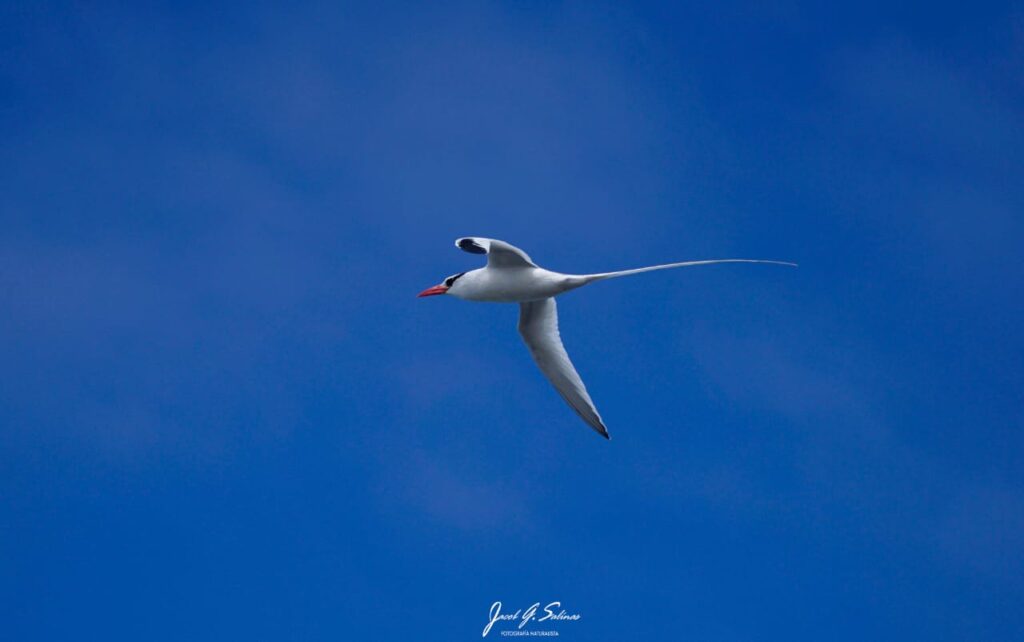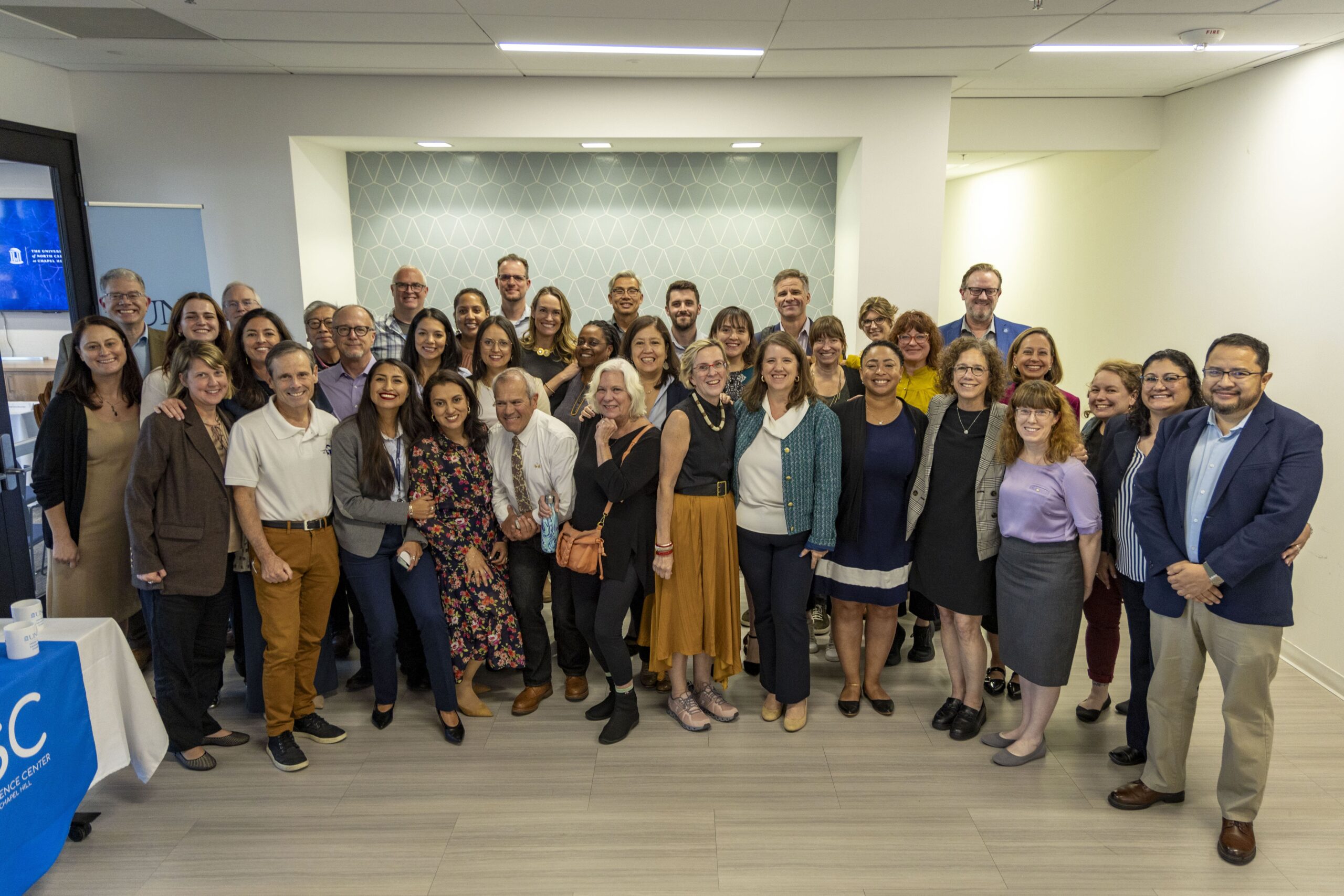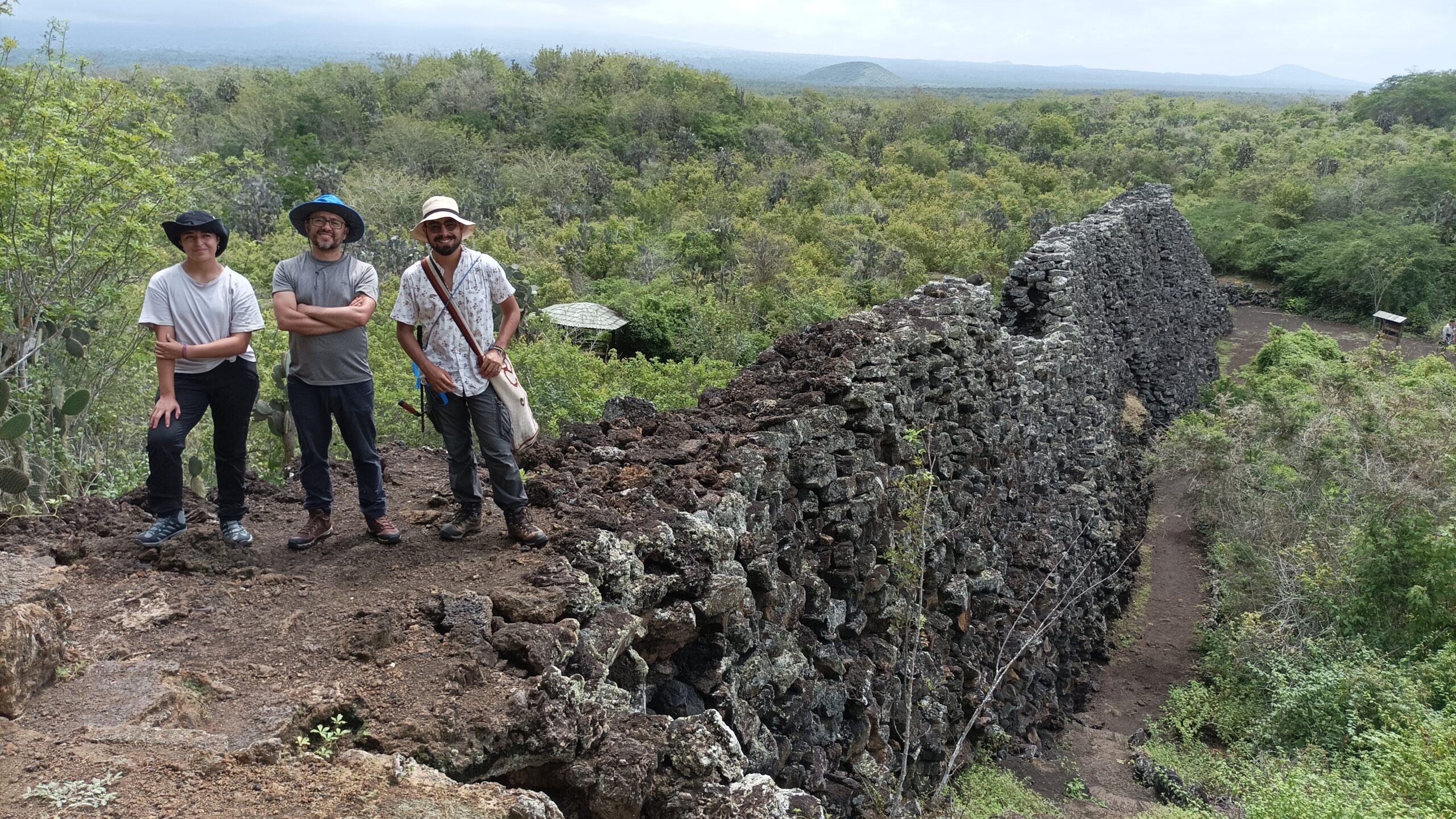Foto: Jacob G. Salinas
Alice Skehel, Catalina Ulloa, Diane Deresienski, Cristina Regalado, Juan Pablo Muñoz-Pérez, Juan Augusto Garcia5, Britta Denise Hardesty, Ronald K. Passingham, Jason Steve Castañeda, Gregory A. Lewbart, Carlos A. Valle.
Resumen
El ave del trópico de pico rojo, Phaethon aethereus, es una especie de ave marina nativa del archipiélago de las Galápagos y ampliamente distribuida en el neotrópico. Los parámetros generales de salud, química sanguínea y hematología no han sido publicados previamente para esta especie. Se realizaron análisis de sangre en muestras tomadas de 51 aves del trópico de pico rojo clínicamente sanos capturados en sus madrigueras en Islote Pitt en la isla de San Cristóbal en julio de 2016 (21) y en la isla Daphne Major en junio de 2017 (30). En el campo, se utilizó un analizador de sangre de atención médica (iSTAT) para obtener resultados de HCO3-, pH, pCO2, pO2, TCO2, iCa, Na, K, Cl, Hb, HCT, brecha aniónica, creatinina, glucosa y nitrógeno ureico. Además, se utilizó un analizador portátil de lactato Lactate PlusTM para medir el lactato sanguíneo, y también se crearon extensiones sanguíneas in situ. Las extensiones sanguíneas se utilizaron para estimar los recuentos de leucocitos y los diferenciales de 100 células. Junto con estos parámetros de bioquímica y hematología, se compararon la frecuencia cardíaca promedio, la frecuencia respiratoria, la temperatura corporal y el índice de masa escalada (calculado a partir del peso y una medida corporal) para determinar las mediciones estándar de un individuo sano. Los datos de referencia y los intervalos de referencia informados en este artículo son esenciales para detectar cambios en la salud de los paíños piquirrojos en el futuro.
Conoce más aquí.





